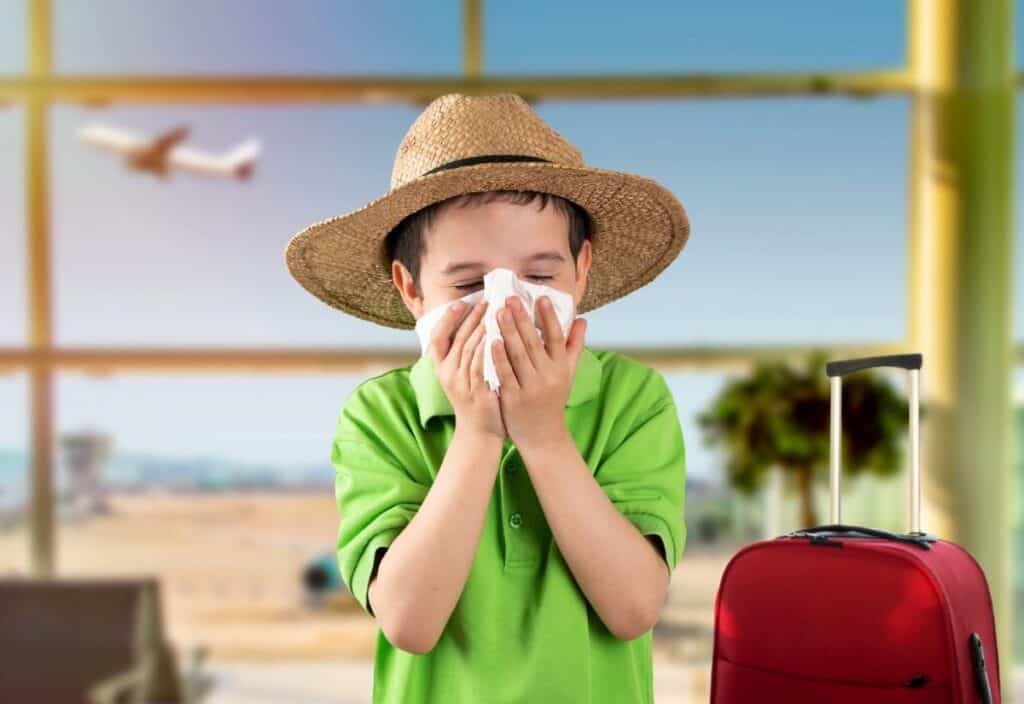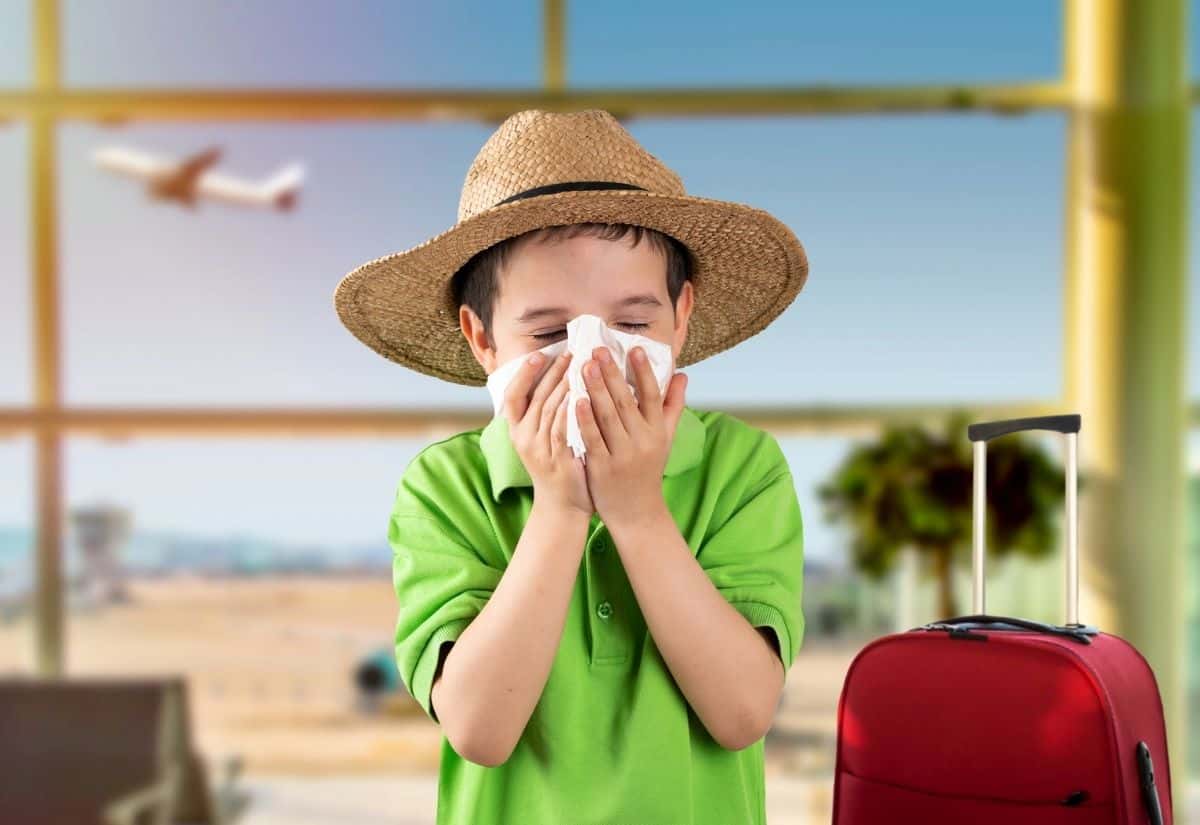Sick on holiday? What parents should know before traveling with kids
Parents should know what to do before traveling with kids in case the trip spirals into crisis. Illness on the road can be stressful, especially when flights are delayed or ferries are canceled in remote areas. In places with limited access to pharmacies or clinics, families must make smart decisions with minimal resources whenever the situation demands it.

Planning helps families stay calm when health issues disrupt a trip. By learning what to expect and how to respond, parents can travel with more confidence and fewer surprises.
Do your research before you go
Families should begin by learning how health care works in their destination country. Identify the nearest hospital and confirm if pediatric clinics are nearby. Write down local emergency numbers and the names of clinics that can treat travelers. The United States Embassy website often lists trusted health care providers for each country.
If the country speaks a different language, parents should learn key medical phrases such as “fever,” “diabetes,” “allergy” and “where is the pharmacy.” Save these on your mobile phone. A printed card with your child’s name, age, allergies and medical conditions, translated into the local language, adds an extra layer of preparedness.
Relying on regular health insurance may not be enough, as most U.S. policies offer limited to no international coverage. A practical step is to purchase travel insurance that includes medical treatment, emergency evacuation and coverage for pre-existing conditions. Some policies also cover lodging and transportation if your child ever requires hospitalization.
Build a mini medical kit
A compact and organized medical kit helps families manage minor illnesses without delay. The kit should contain essentials such as fever reducers, antihistamines, pain relievers, electrolyte powders and adhesive bandages. A digital thermometer is also crucial for monitoring fevers.
Parents traveling with children who rely on medications that require prescriptions, like inhalers or epinephrine auto-injectors, should pack more than enough of those, along with a doctor’s note. Adding familiar snacks and small comfort items, such as a toy or blanket, may help reduce stress. Also, backup pacifiers or sleep aids can be valuable during travel disruptions.
While international pharmacies can be helpful in some cases, families should not rely on them completely for primary care, as medication names, dosages and availability vary widely by country. In an emergency, translating foreign instructions on unfamiliar medicine can be confusing and risky. Always bringing the right supplies makes a difference whenever time is of the essence.
What to do if your child gets sick
Parents should stay calm when a child shows signs of illness, as not every case requires a hospital visit. Instead, monitor symptoms closely and keep the child comfortable. If unsure how to proceed, a practical first step is to contact the hotel front desk for help finding an English-speaking clinic. Some hotels even provide access to an on-call nurse or doctor for basic medical needs, which can offer quick reassurance before seeking outside care.
Many travel insurance plans include 24/7 medical hotlines that connect families with local care providers, so use those services when available. While managing the illness, they should note when symptoms began, track medications and monitor the child’s temperature and energy levels. Even if the child recovers quickly, that information helps doctors provide effective care if follow-up treatment is needed after returning home.
Know what’s normal for the region
Changes in time zones, unfamiliar food or travel-related fatigue can leave children feeling off for a day or two. Parents should watch closely for consistent patterns.
Still, families should not dismiss symptoms that persist or escalate. If discomfort lasts more than 24 hours or worsens quickly, it is time to seek medical attention. Acting early can prevent complications and provide peace of mind.
Preparing for the unexpected
Travel disruptions can hit hard, especially for families with young children. Canceled ferries, grounded flights or sudden weather changes can leave travelers stranded with limited options. Pack a change of clothes, essential medications, snacks, baby formula and charging cables in a carry-on bag to avoid getting caught unprepared. Keeping these basics close can reduce stress during delays or reroutes.
Parents should always keep health kits in their carry-on bags. Easy access is key, especially during delays, missed connections or unexpected overnight stops. Some destinations may lack open pharmacies or stores after hours, making it difficult to find even basic supplies. A well-prepared health kit with plenty of medications to spare can prevent avoidable setbacks and support better care while in transit.
During a recent island trip, we were stranded for three extra days because of the weather. My daughter has a long-term medical condition, so I always pack more medication than she needs. That extra preparation and packing checklist meant we had everything necessary back then, even without access to supplies, reinforcing just how important it is to plan for delays.
Stay ready, travel smoother
There is no such thing as a stress-free trip, but smart planning helps minimize disruptions and ease the pressure when issues arise. Although most children recover quickly and temporary illnesses rarely overshadow the experience, packing a medical kit, knowing where to find help and staying flexible can make the difference between panic and composure. Parents who come prepared often set the pace for calmer, more enjoyable travel. It takes effort to manage the details, but that effort pays off in smoother moments and stronger memories.
Zuzana Paar, a co-founder of Food Drink Life, is a seasoned traveler and writer who has explored 62 countries and lived in St. Lucia, Dubai, Vienna, Doha and Slovakia. Her work has been featured on Fox News, New York Daily News, MSN and more; she has also appeared live on Chicago’s WGN Bob Sirott Radio Show. When she’s not discovering new destinations, she shares travel tips and insider insights to help others experience the world in a unique and unforgettable way.


